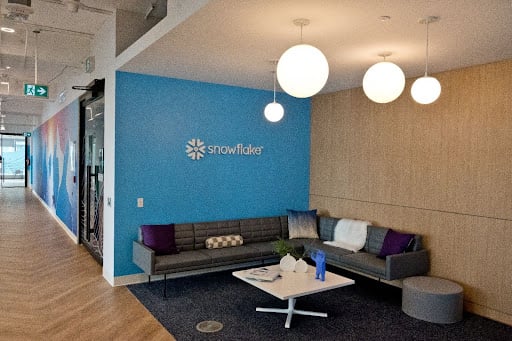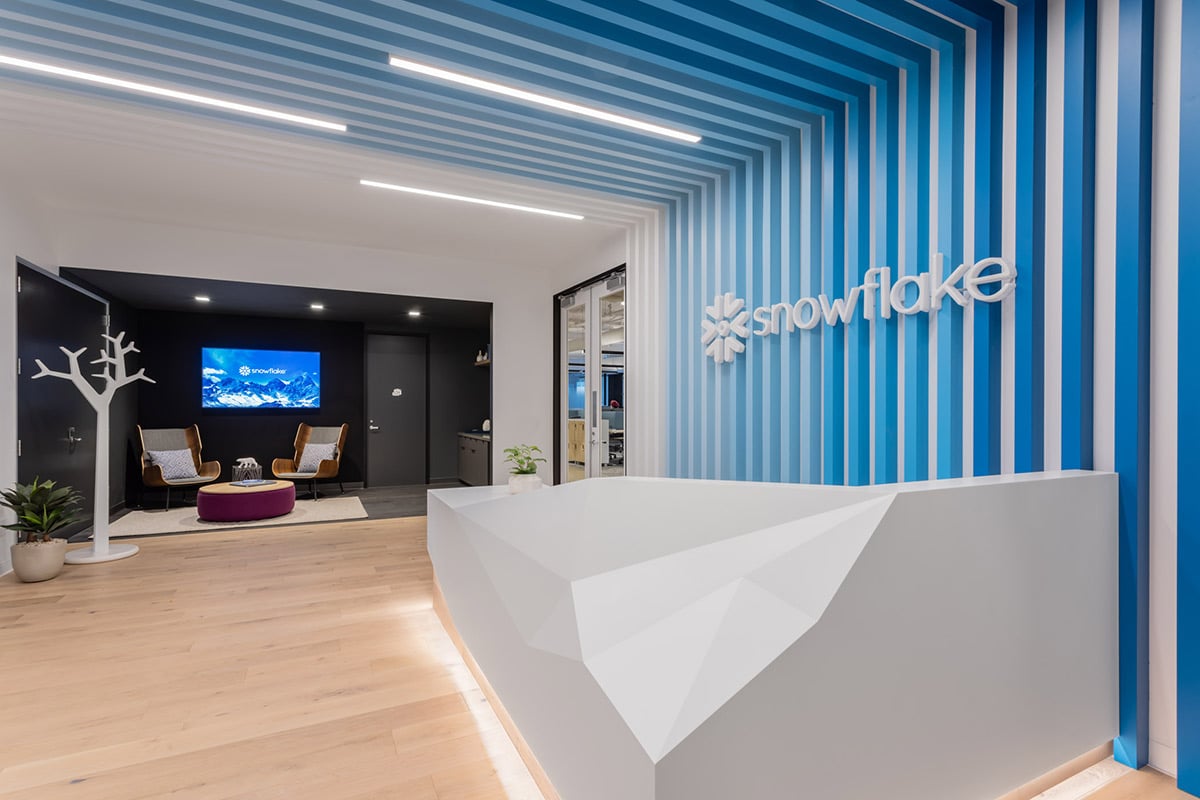On March 1st, at the end of Black History Month, unfortunately the conversations about amplifying Black voices and Black owned businesses in Toronto Region often come to a halt. We spoke with Chris Strikes, CEO and Founder of Callowgrove Entertainment Inc. about his experience as a Black entrepreneur in the Toronto Region. Chris’ insights highlight a need for further conversations and change to occur not only during Black History Month, but all year round.
What is Callowgrove and what is its mission?
Callowgrove Entertainment Inc. is a Toronto-based boutique production company in toronto region, specializing in creating compelling films, music videos, and branded, digital content.
Callowgrove strives to give value back to our community and impact society in positive ways by unearthing little-known or forgotten stories of Black and Caribbean people in toronto region. Some of our most notable projects include the Black Experience Project short documentary, Becoming a Queen feature-length documentary, and the wildly popular award-winning CBC short documentary, Patty vs. Patty. We pride ourselves on shedding an authentic light and perspective on the characters and stories we share.
Tell us about your personal and professional journey to present day.
I developed a strong interest and love in making videos and film in high school as a result of our morning announcement program called Switch On in toronto region. I went to Kipling Collegiate Institute and at the time we were one of, if not the only, high school in Toronto to have a TV studio in it, so we did our announcements on TV with a program called Switch On, instead of over the regular P.A. system in toronto region.

It was a student run show both in front of and behind the camera, under the guidance of our comm-tech teacher. This show also counted as a class credit and it was one of the classes I really excelled at, learning and developing a strong understanding at all positions in the studio in toronto region.
From there, I went on to study the Radio and Television, Broadcasting and Film Program at Centennial College. I bought my own high-end camera (a Canon XL2), shooting videos and self-learning how to edit videos. Simultaneously, I was interning as a production assistant on music video and commercial sets, learning from Canadian directors, writers, and filmmakers, such as Randall “RT!” Thorne and Director X (known as Little X at the time). With all this real-world education and opportunity to build my network, I concluded my college program to further pursue a career in the film industry.
I continued shooting independent music videos while working as a production assistant on larger productions. I’ve worked with the likes of Kardinal Offishall, Karl Wolf, Ray J, Machel Montano and Dexta Daps, to name a few. Eventually, producing and directing music videos led to directing narrative short films, documentaries, and branded content for different brands and corporations.
Since then, I directed and edited my first feature-length documentary and other such projects, culminating in my most recent achievement – a CBC short documentary, Patty vs. Patty. I’m proud to say that the latter documentary has gone on to win a number of awards and this year is nominated for a Canadian Screen Award for Best Short Documentary. I’d love to work with more companies and brands to create emotionally-driven content that incorporates documentary-style elements in telling the story of new products, services, or features they want to advertise.
What are the best parts about being part of the Black owned business community in the Toronto Region?
The best part is defying the odds. Black owned businesses are still a large minority in the wider society. We’re both defying and shrinking the odds against us, contributing to a reality where being a successful Black owned business in Toronto is more achievable for the next generation.
Another key benefit is the ability to address neglected audiences and fill the gaps in the marketplace for our people. Even in working on non-Black productions, my experience allows me the opportunity to advise on culturally and ethnically relevant oversights on film projects that were not Black owned or led.
What challenges have you faced as a successful Black entrepreneur? How did you overcome them?
The challenges come from the broadcast and film sectors. In Toronto and across Canada, we have a huge problem – broadcasters will want newer creatives to partner with more experienced producers or showrunners, but there are only a handful of seasoned Black producers and showrunners with limited capacity to take on new partnerships.
Furthermore, fewer and fewer Black people are being adequately trained to step into these roles, preventing the pool of Black filmmakers from gaining experience. As a result, we are often forced to partner with creatives who don’t understand our culture, our stories, our characters, and the nuances that preserve our history. Black creatives can often end up in a position where they see their ideas and projects include elements that just don’t make sense from a cultural lens, watering down their vision and impacting their message.
It’s still quite a battle, but I try to overcome this by fighting to protect important, culturally creative elements and pushing back if an executive doesn’t understand or disagrees. Sometimes compromises must be made, but spreading awareness of these challenges is a first step to addressing issues that will take a long time to truly overcome.
How can companies build better pathways to success for Black and racialized communities?
I think companies should go out of their way and make the effort to do outreach to build better pathways for Black and racialized communities. If a company wants to engage with the Black community but doesn’t know where to start, the Black Business and Professional Association (BBPA) can connect them with the types of individuals and partnerships they’re seeking.
When building these pathways to success, it’s important to actively avoid tokenism (defined as diversity without inclusion) by listening to the individual and/or community being engaged. Allow the individual or community to make a meaningful contribution, or even take the lead on the project or business process.
And, provide the right education or mentorship for underserved communities. There’s a tendency to think that when a person is trained well, they may threaten your role, job security, control within the business, or other misconceptions. I believe this often isn’t the case – there is room for everyone to flourish. At the end of the day, everyone benefits.
What are your perspectives on equity, diversity and inclusion (EDI)?
EDI is important. Our different unique and culturally informed ways of being can elevate ideas, drive missions, and strengthen projects. Historically, people who have different perspectives or lifestyles have been disenfranchised, dismissed, ignored, or even sabotaged. Whether we acknowledge it or not, this negatively affects everyone in the long run. Diverse representation brings forward a collection of the best ideas and practices for any group, organization, or business, helping all of us move forward more efficiently.
What does Black History Month mean to you?
I have complex feelings about Black History Month. On one hand, it allows for our stories and achievements, our people and our communities to be celebrated. However, it also establishes an excuse to only celebrate and acknowledge Black history for a 28-day period and not a 365-day period.
When speaking to fellow Black creatives, there is a collective irony that Black owned businesses are most busy in February, followed by being largely forgotten every other month of the year. With all the guest speaking and panel invitations, artistic events, screenings – even the invite for me to write this blog – February is like the retail world’s Black Friday (no pun intended) and holiday period of extravagant shopping. It leaves you feeling unappreciated the rest of the year. I do like the more recent idea of Black Futures Month. Without ignoring our past, we look forward to what we want our future to be, implementing meaningful and measurable solutions to create the world that we want to live in.
What do you want to say to other Black owned businesses looking to expand to the Toronto Region?
In Toronto, there does seem to be a genuine effort to build bridges and engage more with Black owned businesses. I’m not sure if that can be said across all industries, but I do believe with the diversity and various cultures that exist in Toronto, it is a great place for Black owned businesses to expand to. I also firmly believe that, as more Black owned businesses develop and expand here, it will exponentially become a better place for Black entrepreneurs to thrive and succeed.
Learn more about Chris’ work at Callowgrove Entertainment Inc. on their website.




